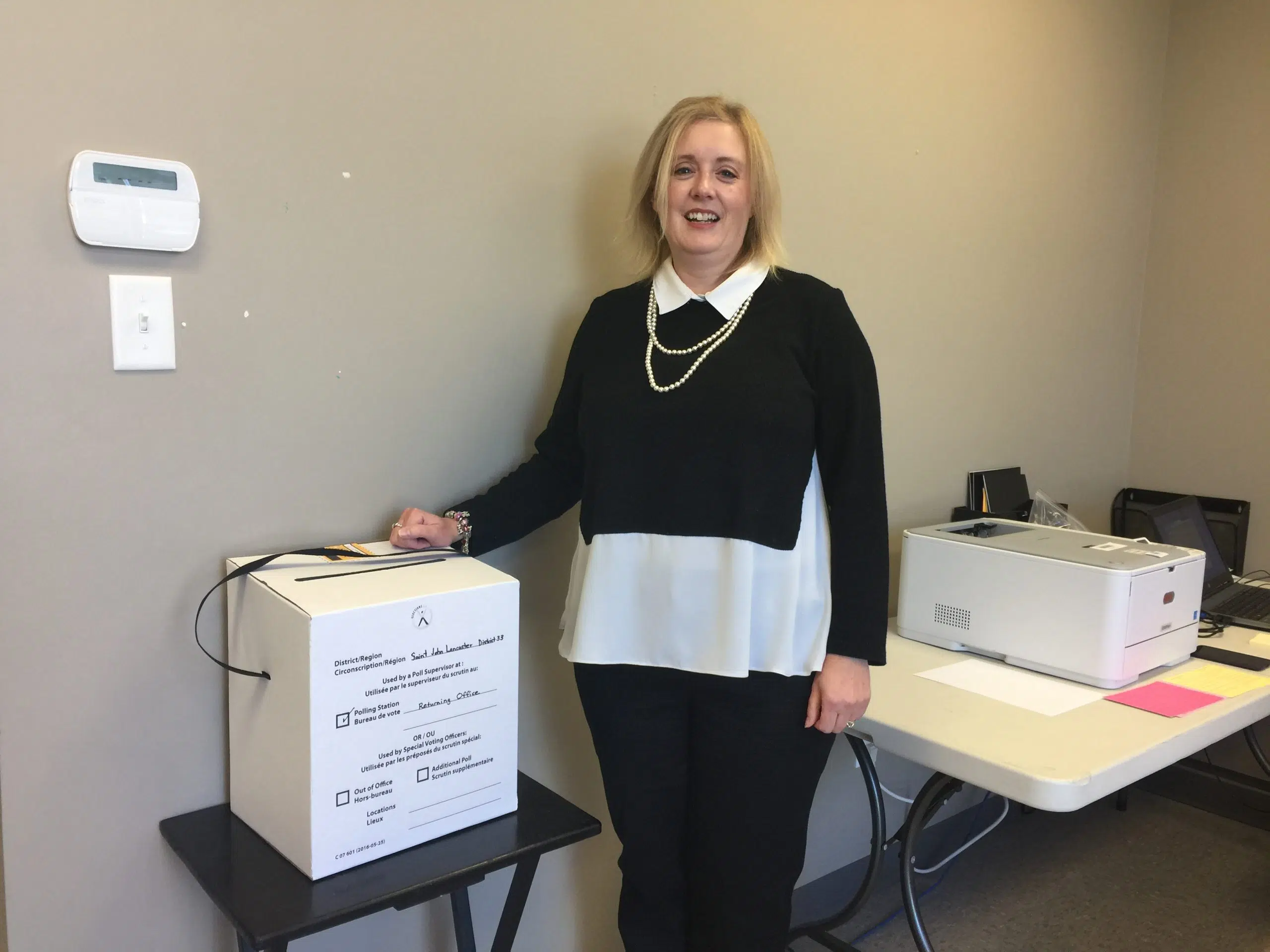New Brunswick’s top election official has tabled a special report with nine recommendations stemming from September’s snap election.
Kim Poffenroth submits a report to the provincial legislature after each election, which includes a series of recommendations.
But the chief electoral officer said the recommendations her office come up with often get lost in the lengthy reports.
“Given the importance of the lessons learned after this last election — it was quite unique, as everyone is aware — we felt it was important that the recommendations we were making be able to stand on their own,” Poffenroth said in an interview.
Flexibility During Emergency Situations
One of the top recommendations by Poffenroth is more flexibility for chief electoral officers to respond to emergency situations during provincial elections.
She said the Elections Act is intentionally prescriptive but, at the same time, it limits her office’s ability to adapt or modify the electoral processes where needed.
“It wouldn’t just necessarily be in a pandemic,” said Poffenroth. “It might also be if there was historic floods like we had a number of years ago. Just to provide a little bit of flexibility.”
Poffenroth said it could include things like extended voting hours to give more people the chance to cast their ballot or a vote-by-phone option for vulnerable residents.
She said they do not want the authority to extend the time for filing nomination papers nor to postpone election day itself.
“The reason we’ve asked for flexibility as opposed to specific measures is you need to be able to adapt whatever the emergency situation is,” she said.
Poffenroth said similar changes have already been made to the Municipal Elections Act for municipal elections.
Review Vote-By-Mail Process
The chief electoral officer is also calling for a review of the existing vote-by-mail process and to come back with more recommendations.
More than 13,000 vote-by-mail packages were prepared during September’s election compared to the 100 to 200 they usually see.
Poffenroth said one thing the legislature should consider is allowing flexibility in the ballot application process.
“Right now, we require a signature component which, depending on whether you have access to technology, if you can get a hold of the application, that can make the process quite cumbersome,” she said.
The report said such a process might include: the use of a secure online application portal requiring electors to upload their details along with a photo of their identification; a unique tracking number issued with the vote-by-mail package as it is sent out; and a method to confirm the received ballot was, in fact, returned by the elector in question.
End Government Appointment Of Returning Officers
Poffenroth has also renewed the call to end the appointment of returning officers and election clerks by government.
It is a recommendation Poffenroth and previous chief electoral officers have made to successive governments, she said.
“One of our paramount values in conducting elections is being non-partisan,” said Poffenroth. “It negatively impacts that perception of our non-partisan nature if the government of the day has appointed returning officers. It goes as much to perception as any actual issue with a returning officer acting in a non-partisan way.”
New Brunswick remains one of the last jurisdictions in Canada in which the appointment of returning officers remains the purview of the government, she said.
Other recommendations in the 18-page report include:
- increase the minimum number of days for the election period of an unscheduled election to 38 from 28;
- eliminate the requirement that a nomination contestant register with the chief electoral officer and the requirements that a contestant file a financial return;
- increase the remuneration for provincial and municipal election workers and tying all future increases to the provincial minimum wage rate;
- electors waiting in line to vote at a returning office at 8 p.m. on Election Day be entitled to vote, similar to those at polling stations; and
- prior to the availability of the official printed ballots, an elector using a write-in ballot be allowed to either write the name of the candidate they wish to vote for or the name of the registered political party that endorsed, or will endorse, the candidate for whom the elector wishes to vote.
“While, at the end of the day, Elections New Brunswick successfully administered a safe election in September 2020 under clearly challenging circumstances, it is still important to make recommendations to mitigate the challenges that we identified during this election,” Poffenroth wrote.
“We urge the elected members of New Brunswick’s Legislative Assembly to support the changes that we are recommending and to bring them forward for the debate and discussion they warrant.”
Elections New Brunswick expects to release its official report on the Sept. 14, 2020, provincial general election, which contains the poll-by-poll results, voter turnout numbers and other statistics of interest, in the coming weeks.




